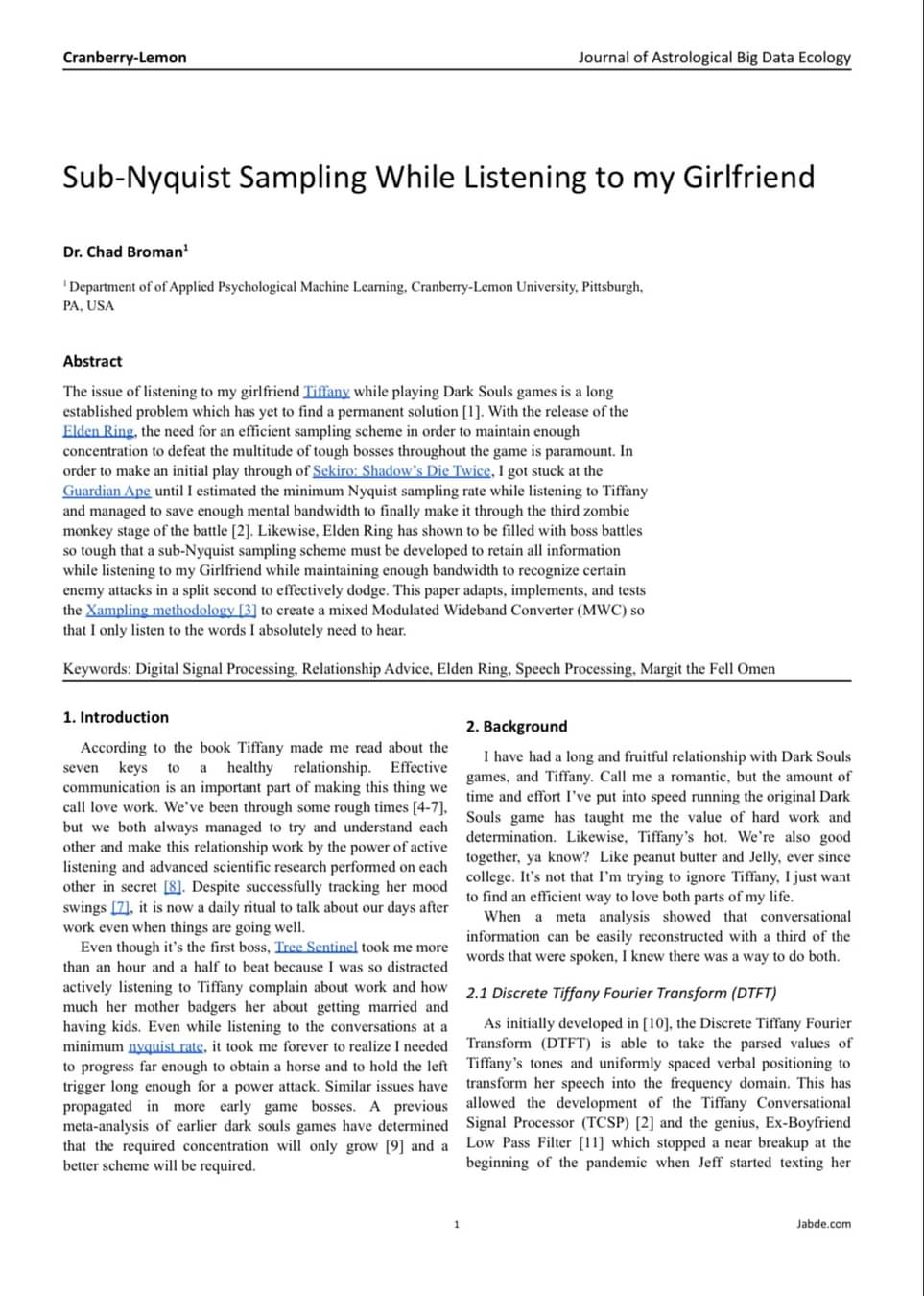this post was submitted on 06 Jul 2024
302 points (96.6% liked)
Science Memes
11670 readers
2679 users here now
Welcome to c/science_memes @ Mander.xyz!
A place for majestic STEMLORD peacocking, as well as memes about the realities of working in a lab.

Rules
- Don't throw mud. Behave like an intellectual and remember the human.
- Keep it rooted (on topic).
- No spam.
- Infographics welcome, get schooled.
This is a science community. We use the Dawkins definition of meme.
Research Committee
Other Mander Communities
Science and Research
Biology and Life Sciences
- [email protected]
- [email protected]
- [email protected]
- [email protected]
- [email protected]
- [email protected]
- [email protected]
- [email protected]
- [email protected]
- [email protected]
- [email protected]
- [email protected]
- [email protected]
- [email protected]
- [email protected]
- [email protected]
- [email protected]
- [email protected]
- [email protected]
- [email protected]
- [email protected]
- [email protected]
- [email protected]
- [email protected]
- !reptiles and [email protected]
Physical Sciences
- [email protected]
- [email protected]
- [email protected]
- [email protected]
- [email protected]
- [email protected]
- [email protected]
- [email protected]
- [email protected]
Humanities and Social Sciences
Practical and Applied Sciences
- !exercise-and [email protected]
- [email protected]
- !self [email protected]
- [email protected]
- [email protected]
- [email protected]
Memes
Miscellaneous
founded 2 years ago
MODERATORS
you are viewing a single comment's thread
view the rest of the comments
view the rest of the comments

I legit would love to discuss sub-Nyquist sampling. I worked in the field for a few years.
Can you eli5 nyquist?
The Nyquist theorem, in very simple terms, describes the minimum measurements you need to take to capture all the information in a signal. It turns out, if you have special information about what signal you expect to see, you can still figure it out using fewer measurements.
Generally speaking, it tells you how many measurements you need to take to capture the whole signal.
Or in terms of practical applications, it explains why CDs are "good enough" and audiophile stuff is very often bullshit.
Instead of actually explaining it, here's how I like to remember it: If you are measuring something that produces a perfect sine wave, and you can't take measurements faster than 30 Hz, then you can't definitively prove that the sine wave repeats faster than that. No matter how many data points you collect, the actual frequency could always be double what your measurements suggest.